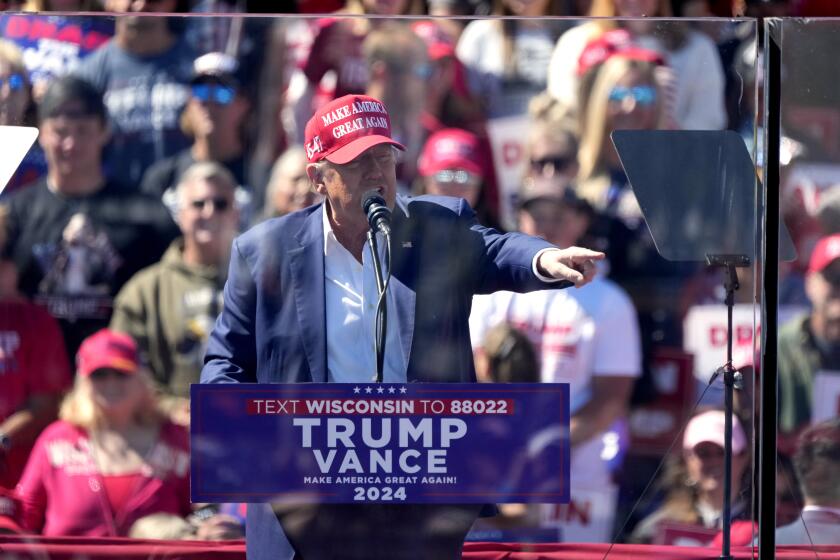The U.N.’s Responsibility
Thousands around the world demonstrated Saturday against the world’s creep toward war: If only the United States would relent, the protesters say. Would that it were that simple. The U.N. Security Council meeting Friday demonstrated the wide gap between the nations led by France that demand more time for inspectors to hunt for Iraq’s concealed weapons and the U.S. and allies that want to declare time’s up. However, the United Nations risks irrelevance if it does not set a definite date for Iraq to comply with Security Council demands -- made as long as 12 years ago and as recently as last November -- that it destroy its chemical and biological weapons and show that it has done so.
There are legitimate concerns, many of them repeatedly raised by this editorial page, about serious consequences of U.S. military action against Iraq. War may provoke more terrorism; it would be costly; it could destabilize the Middle East, endanger Israel and Arab nations friendly to Washington and imperil world oil supplies.
But there is also the risk -- and it cannot be ignored -- of Iraq’s stockpiles of anthrax, mustard gas and other weapons winding up in terrorists’ hands. Iraq says it has no such weapons; Hans Blix, the chief weapons inspector, doubts that claim and said Friday that Baghdad had rebuilt missile facilities that U.N. inspectors destroyed more than four years ago. That fact and many others put the disarmament problem squarely in the lap of the U.N. Security Council. Shirking that responsibility merely invites what much of the world community and many in this country do not want: a military response led by the United States.
French Foreign Minister Dominique de Villepin said France realizes force may be required “one day” if inspections cannot continue. France should specify that day. But the exact time should be based not on inspectors’ success in finding prohibited weapons in an elaborate hide-and-seek contest in a nation the size of California. The date should be based on Iraq’s defiance of years of Security Council demands to disarm.
Secretary of State Colin L. Powell said he expected a new report from Blix and Mohamed ElBaradei March 1. By then the United States will have about 150,000 troops close to Iraq. The Bush administration should continue to consult with Security Council members on a second resolution approving U.N. military action if Iraq remains recalcitrant. But if the council just stands by as Baghdad continues to possess prohibited weapons and watches Washington go to war with a “coalition of the willing” not sanctioned by the United Nations, it will seriously, perhaps fatally, damage itself. The best way for France and others to stop what they see as unrestrained U.S. initiative is to give the United States a viable alternative. Endless stalling is not that alternative.
More to Read
Sign up for Essential California
The most important California stories and recommendations in your inbox every morning.
You may occasionally receive promotional content from the Los Angeles Times.










